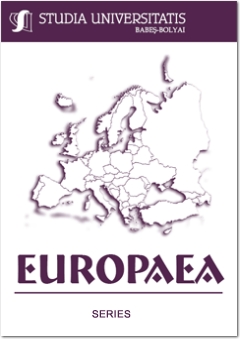1993: HOW DID AN AMERICAN EPISTEMIC COMMUNITY REGARD THE REGRANTING OF THE MOST-FAVOURED-NATION STATUS TO ROMANIA
1993: HOW DID AN AMERICAN EPISTEMIC COMMUNITY REGARD THE REGRANTING OF THE MOST-FAVOURED-NATION STATUS TO ROMANIA
Author(s): Vasile PuşcaşSubject(s): Economy
Published by: Studia Universitatis Babes-Bolyai
Keywords: the Most Favoured Nation clause; international policy; USA - Romania relationships; USA Congress; the Congressional Research Service.
Summary/Abstract: After the end of World War II and until the end of the Cold War, the United States of America gave the Most Favoured Nation (MFN) clause more than a commercial significane. Romania’s MFN status was suspended in 1951 and restored in 1975, was suspended again in 1988 and the US Congress denied to restore it immediately after 1989, since the Congress continued to carefully and severely monitor the political, economic and social evolution in Romania. While the leaders from Bucharest considered that re-granting the MFN clause for Romania could be decided through bilateral political-diplomatic actions, in Washington, all Romanian social components were being taken into consideration. The Congressional Research Service (CRS) is a legislative branch institution within the Library of Congress, being in charge with conducting legal analysis and research on American and international policy in response to individual congressman or congressional staff request. We prove in the article, through several cited documents/analyses conducted during the post-1989 period, notably 1993, that this epistemic community did play a very important role in the process of restoring the US MFN status for Romania.
Journal: Studia Universitatis Babes-Bolyai - Studia Europaea
- Issue Year: 60/2015
- Issue No: 1
- Page Range: 153-170
- Page Count: 18
- Language: English

